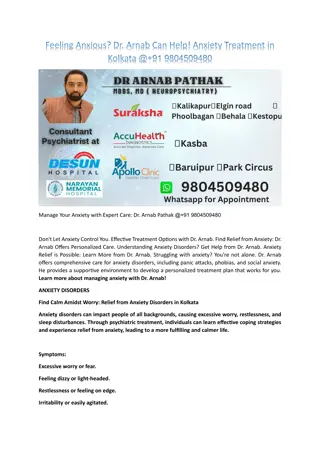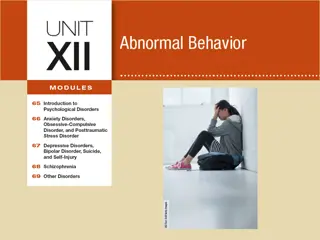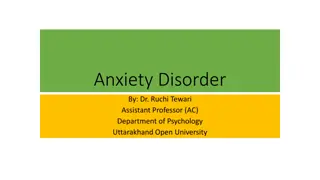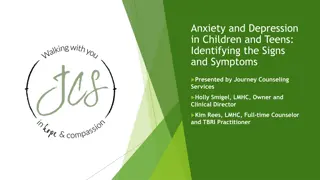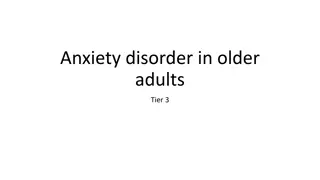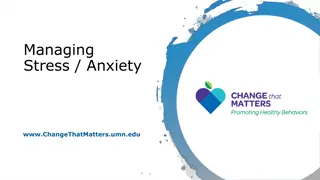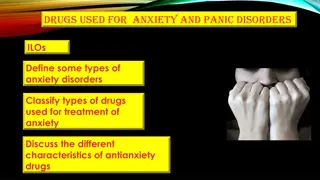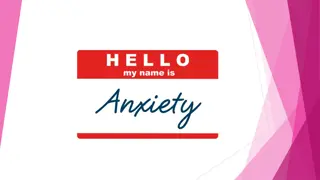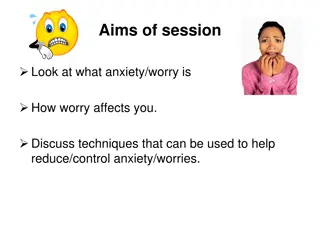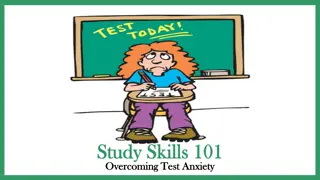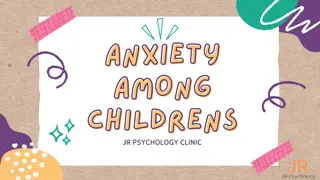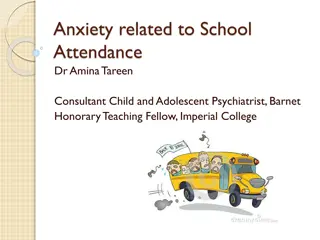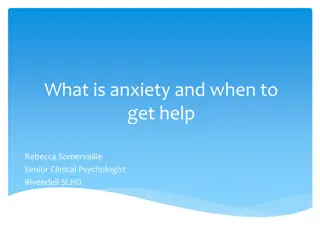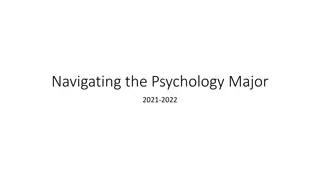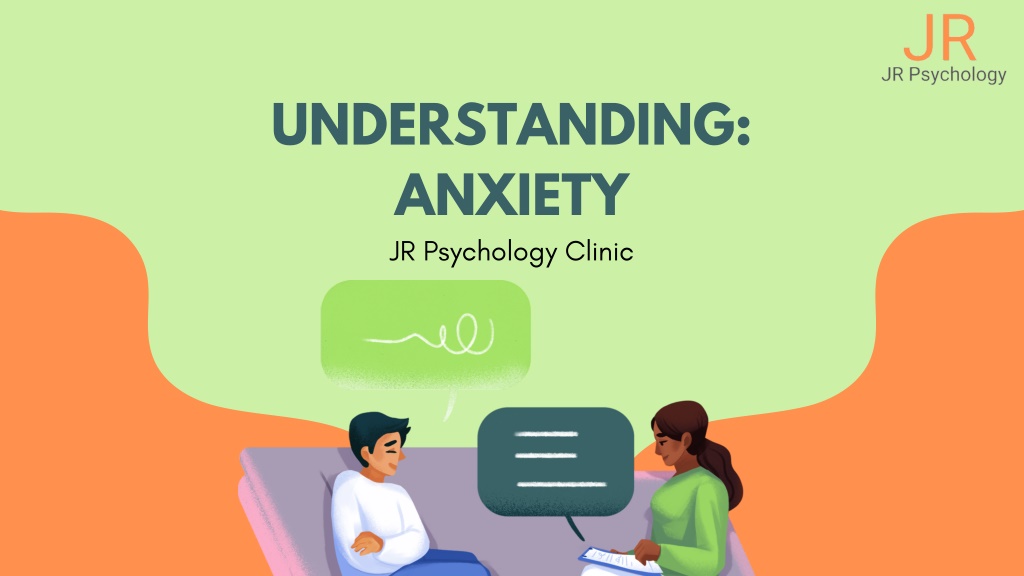
Understanding Anxiety By JR Psychology Clinic
Anxiety is a part of life, but it shouldnu2019t overshadow your daily experiences. Recognizing the symptoms is the first step towards managing this condition. If you or someone you know is struggling with anxiety, itu2019s important to seek anxiety
Download Presentation

Please find below an Image/Link to download the presentation.
The content on the website is provided AS IS for your information and personal use only. It may not be sold, licensed, or shared on other websites without obtaining consent from the author. If you encounter any issues during the download, it is possible that the publisher has removed the file from their server.
You are allowed to download the files provided on this website for personal or commercial use, subject to the condition that they are used lawfully. All files are the property of their respective owners.
The content on the website is provided AS IS for your information and personal use only. It may not be sold, licensed, or shared on other websites without obtaining consent from the author.
E N D
Presentation Transcript
UNDERSTANDING: ANXIETY JR Psychology Clinic
SYMPTOMS The symptoms of anxiety can be broadly categorized into two groups: psychological and physical. Psychological Symptoms: Excessive worry about everyday situations Restlessness and a feeling of being on- edge Uncontrollable feelings of anxiety Increased irritability Concentration difficulties Sleep disturbances, such as difficulty falling or staying asleep Physical Symptoms: Increased heart rate Rapid breathing (or hyperventilation) Sweating Trembling Feeling weak or tired Gastrointestinal problems
TYPES OF ANXIETY There are several types of anxiety disorders, including: Generalized Anxiety Disorder (GAD): Characterized by persistent and excessive worry about various things. Panic Disorder: Involves recurrent panic attacks that strike without warning. Social Anxiety Disorder: The fear of being judged negatively in social situations. Specific Phobias: An intense fear of a specific object or situation. Agoraphobia: The fear of places or situations that might cause panic, helplessness, or embarrassment.
CAUSES GENETICS LIFE EVENTS BRAIN CHEMISTRY
MANAGEMENT While anxiety disorders can be debilitating, they are treatable, and there are many strategies that can help manage the symptoms: Therapy: Cognitive-behavioral therapy (CBT) It teaches people different ways of thinking, behaving, and reacting to anxiety-producing and fearful situations. Medication: Antidepressants and anti-anxiety medications can help to reduce the symptoms of anxiety. Self-care: Engaging in stress-reducing activities such as exercise, meditation, and proper sleep can improve symptoms. Support Groups: Sharing your experience with others who understand can make you feel less isolated.
CONCLUSION Anxiety is a part of life, but it shouldn t overshadow your daily experiences. Recognizing the symptoms is the first step towards managing this condition. If you or someone you know is struggling with anxiety, it s important to seek professional help.
THANK YOU! https://www.jrpsychology.com.au/anxiety-treatment/


